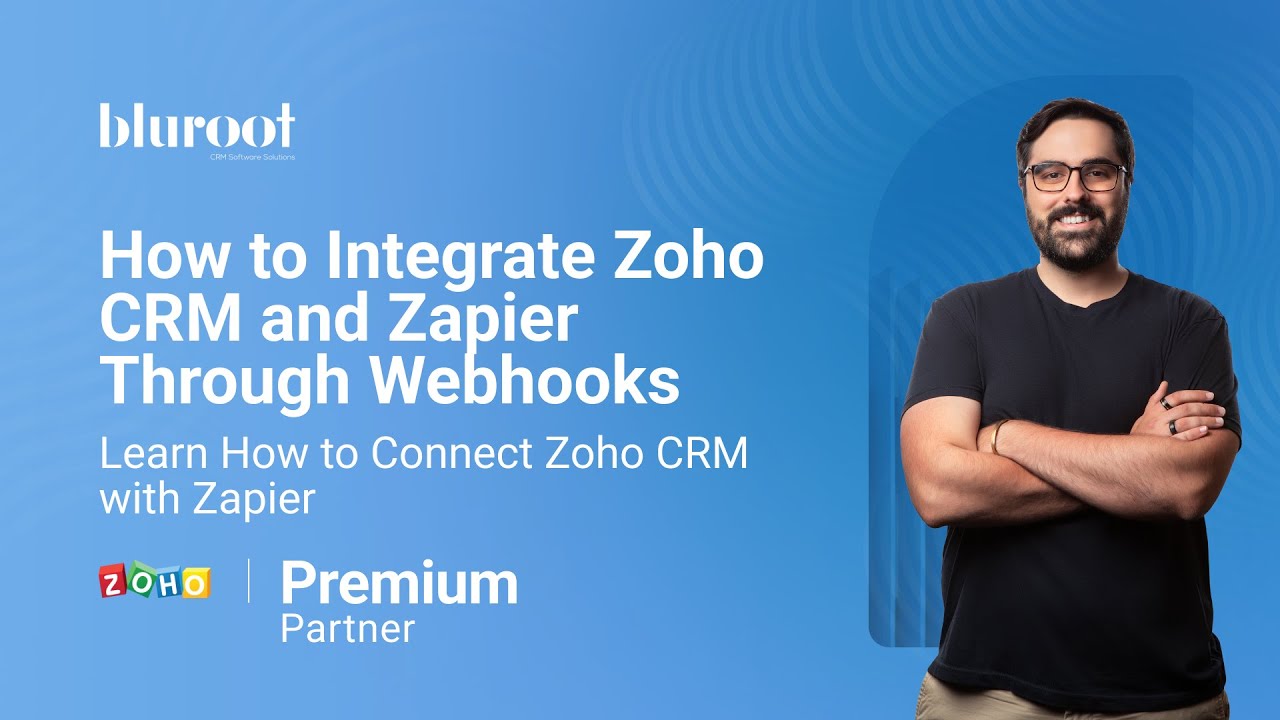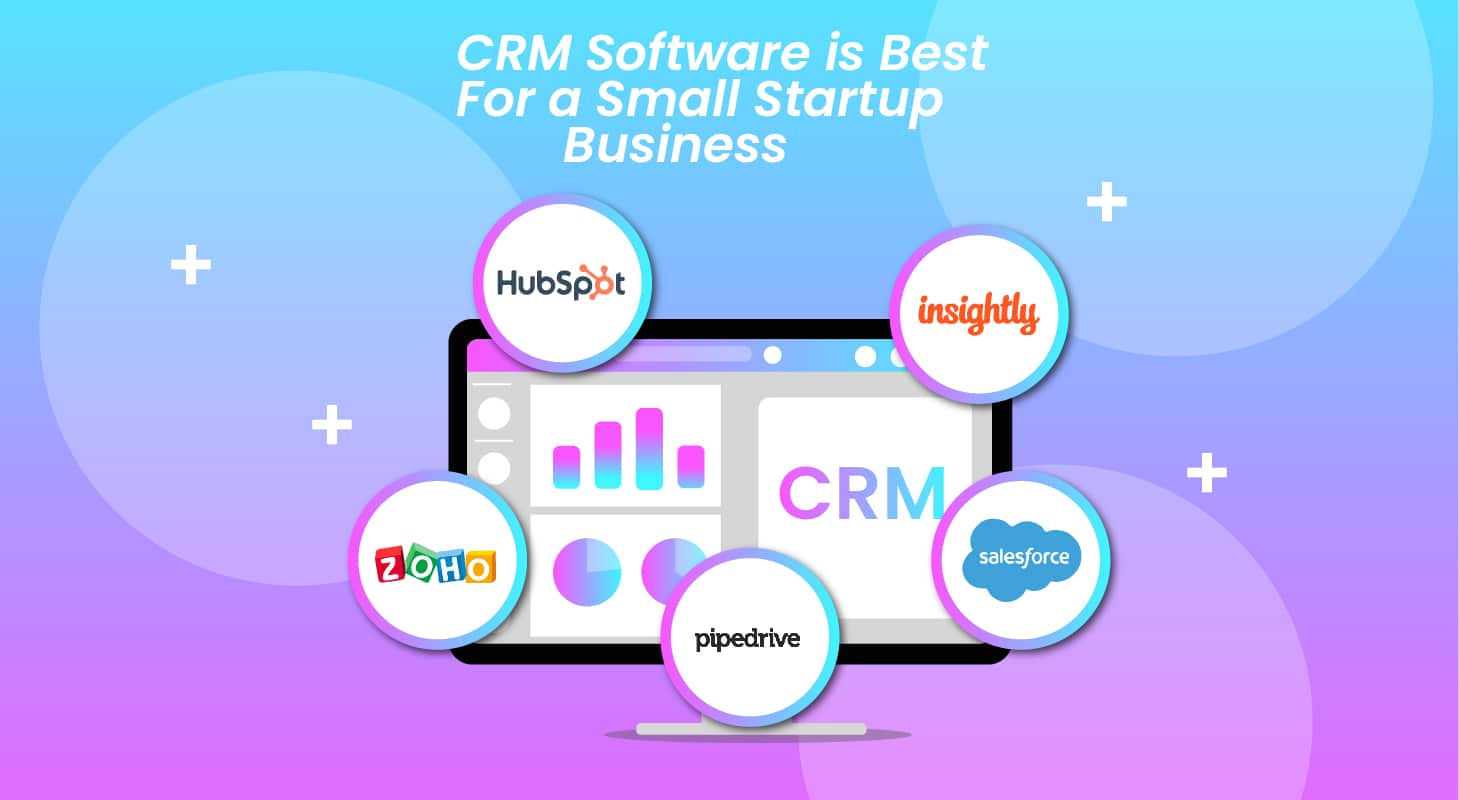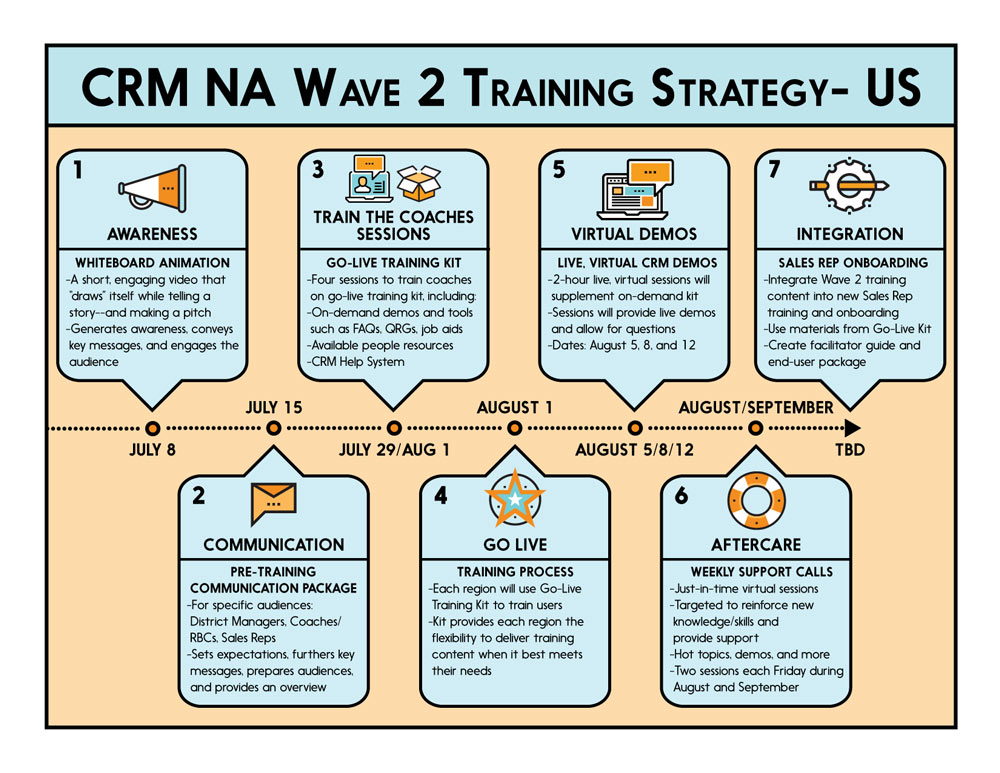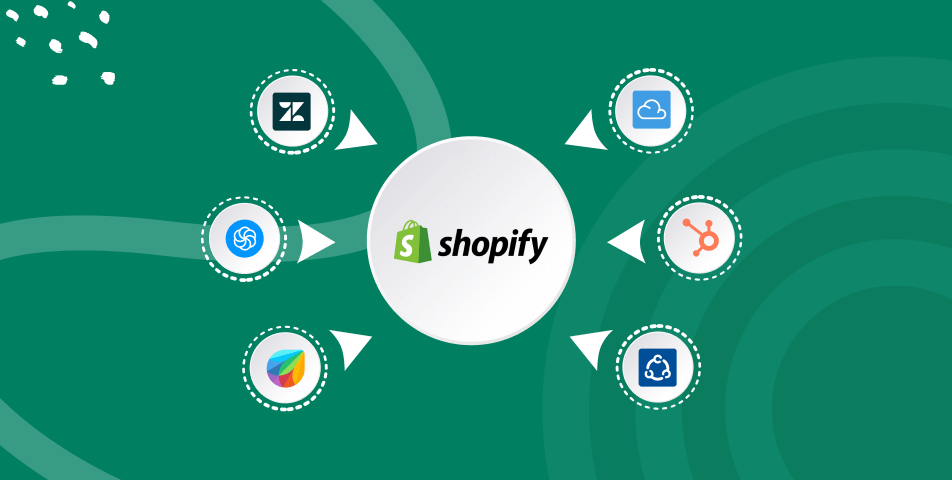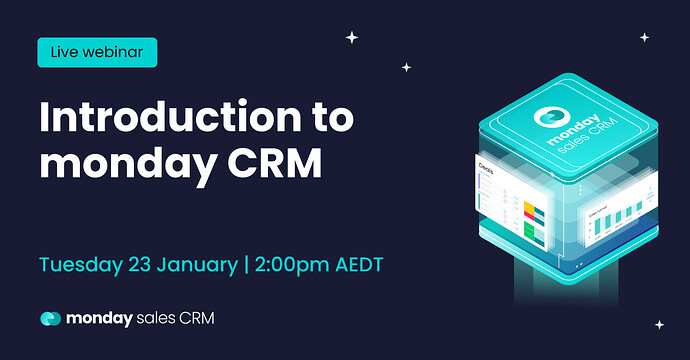
Unlock CRM Marketing Power: Host Engaging Webinars and Skyrocket Your ROI
In today’s fast-paced digital landscape, businesses are constantly seeking innovative ways to connect with their target audience, nurture leads, and ultimately, drive sales. One powerful strategy that consistently delivers impressive results is the integration of CRM (Customer Relationship Management) marketing with webinar hosting. This article delves deep into the synergy between these two dynamic forces, exploring how you can leverage webinars to supercharge your CRM marketing efforts and achieve remarkable ROI. We’ll cover everything from planning and execution to promotion and analysis, providing you with a comprehensive guide to mastering the art of CRM marketing webinar hosting.
Understanding the Power of CRM Marketing
Before we dive into the specifics of webinar hosting, let’s establish a solid understanding of CRM marketing. At its core, CRM marketing revolves around using a CRM system to manage and analyze customer interactions throughout the customer lifecycle. This includes everything from initial contact and lead nurturing to sales and post-sales support. The goal is to build strong, lasting relationships with customers, personalize their experiences, and ultimately, increase customer lifetime value.
A robust CRM system acts as the central nervous system of your marketing and sales operations. It provides a centralized repository of customer data, allowing you to:
- Segment your audience: Group customers based on demographics, behavior, purchase history, and other relevant criteria.
- Personalize your messaging: Tailor your communications to resonate with specific customer segments.
- Automate your marketing workflows: Set up automated email sequences, lead nurturing campaigns, and other tasks to save time and improve efficiency.
- Track your results: Monitor key metrics such as open rates, click-through rates, conversion rates, and ROI to measure the effectiveness of your campaigns.
By implementing a well-defined CRM marketing strategy, businesses can experience significant benefits, including increased customer loyalty, higher conversion rates, improved sales productivity, and a more accurate understanding of customer needs and preferences.
The Role of Webinars in CRM Marketing
Webinars, or web-based seminars, have emerged as a highly effective tool for engaging with audiences, educating them about products or services, and generating leads. They provide a platform for interactive presentations, Q&A sessions, and real-time interaction, making them a highly engaging and valuable experience for attendees. When integrated with CRM marketing, webinars become even more potent, offering a wealth of opportunities to enhance customer relationships and drive business growth.
Here’s how webinars can boost your CRM marketing strategy:
- Lead Generation: Webinars are excellent lead magnets. By offering valuable content, you can attract potential customers and capture their contact information.
- Lead Nurturing: Webinars allow you to nurture leads throughout the sales funnel by providing valuable information and building trust.
- Customer Education: Webinars can educate existing customers about your products or services, helping them to get more value and increase customer retention.
- Brand Building: Webinars position you as a thought leader in your industry, enhancing your brand reputation and credibility.
- Sales Enablement: Webinars can be used to demonstrate your product or service, answer customer questions, and close deals.
Planning Your CRM Marketing Webinar
Successful webinar hosting requires careful planning. Here’s a step-by-step guide to help you create a compelling and effective webinar:
1. Define Your Goals and Objectives
Before you start planning your webinar, it’s crucial to define your goals and objectives. What do you want to achieve with this webinar? Are you looking to generate leads, educate customers, promote a product, or build brand awareness? Your goals will guide your content, promotion, and overall strategy.
2. Identify Your Target Audience
Who are you trying to reach with your webinar? Understand your target audience’s needs, interests, and pain points. This will help you tailor your content and messaging to resonate with them and increase engagement.
3. Choose a Compelling Topic
Select a topic that is relevant to your target audience and aligns with your business goals. The topic should be informative, engaging, and offer valuable insights or solutions. Consider topics that address common challenges, provide practical tips, or showcase your expertise.
4. Develop Your Webinar Content
Create a well-structured presentation that includes a clear introduction, body, and conclusion. Use visuals, such as slides, videos, and demos, to keep your audience engaged. Incorporate interactive elements, such as polls, Q&A sessions, and live demonstrations, to encourage audience participation. Keep the content concise, informative, and easy to understand.
5. Select Your Webinar Platform
Choose a webinar platform that meets your needs and budget. Consider features such as screen sharing, recording capabilities, audience interaction tools, and integration with your CRM system. Popular webinar platforms include Zoom, GoToWebinar, WebinarJam, and Demio.
6. Schedule Your Webinar
Choose a date and time that is convenient for your target audience. Consider time zones and optimal attendance rates. Send out calendar invites and reminders to ensure high attendance.
Promoting Your CRM Marketing Webinar
Once you’ve planned your webinar, it’s time to promote it and attract attendees. Here are some effective promotion strategies:
1. Email Marketing
Use your CRM system to segment your audience and send targeted email invitations to relevant contacts. Include a compelling subject line, a clear description of the webinar, and a call to action to register. Send out reminder emails leading up to the webinar.
2. Social Media Marketing
Promote your webinar on social media platforms such as LinkedIn, Twitter, Facebook, and Instagram. Create engaging posts that highlight the benefits of attending and include a registration link. Run paid advertising campaigns to reach a wider audience.
3. Content Marketing
Create blog posts, articles, and other content related to your webinar topic. Include a call to action to register for the webinar. This will help you attract organic traffic and generate leads.
4. Partner with Other Businesses
Collaborate with other businesses or industry experts to co-host your webinar. This will help you reach a wider audience and leverage their expertise.
5. Website Promotion
Add a webinar registration form to your website. Promote your webinar on your homepage, blog, and other relevant pages.
Executing Your CRM Marketing Webinar
On the day of your webinar, it’s important to ensure a smooth and engaging experience for your attendees. Here’s what to keep in mind:
1. Technical Preparation
Test your technology beforehand to ensure that everything is working properly. This includes your microphone, camera, screen sharing, and internet connection. Have a backup plan in case of technical difficulties.
2. Welcome Your Attendees
Start your webinar on time and welcome your attendees. Introduce yourself and your speakers. Set the stage for the webinar by explaining the agenda and the key takeaways.
3. Deliver Engaging Content
Present your content in a clear, concise, and engaging manner. Use visuals, such as slides, videos, and demos, to keep your audience engaged. Incorporate interactive elements, such as polls, Q&A sessions, and live demonstrations, to encourage audience participation.
4. Manage the Q&A Session
Dedicate time for a Q&A session at the end of your webinar. Answer questions from your audience in a clear and informative manner. Provide additional resources or follow-up information as needed.
5. Follow Up with Attendees
Send a thank-you email to all attendees after the webinar. Include a recording of the webinar, the presentation slides, and any additional resources or offers. Follow up with leads to nurture them through the sales funnel.
Integrating Webinars with Your CRM System
The true power of CRM marketing webinar hosting lies in the seamless integration of the two. Here’s how to leverage your CRM system to maximize the impact of your webinars:
1. Capture Webinar Data in Your CRM
Integrate your webinar platform with your CRM system to automatically capture attendee data, such as registration information, attendance rates, and engagement metrics. This will provide you with valuable insights into your audience and their interests.
2. Segment Your Leads
Use the data collected from your webinars to segment your leads based on their interests, behavior, and engagement levels. This will allow you to tailor your follow-up communications and nurture them more effectively.
3. Automate Your Follow-Up Campaigns
Set up automated email sequences to follow up with webinar attendees. Send thank-you emails, provide additional resources, and offer exclusive promotions or discounts. Personalize your messaging based on the attendee’s engagement level.
4. Track Your ROI
Use your CRM system to track the ROI of your webinars. Measure key metrics such as lead generation, conversion rates, and sales revenue. This will help you determine the effectiveness of your webinar strategy and make data-driven decisions.
5. Personalize the Experience
Leverage the insights you gain from your CRM system to personalize the webinar experience. Tailor your content and messaging to resonate with specific audience segments. Use the attendee’s name and other relevant information to create a more engaging and personalized experience.
Measuring and Analyzing Your Webinar Results
To continuously improve your CRM marketing webinar strategy, it’s essential to measure and analyze your results. Here are some key metrics to track:
- Registration Rate: The percentage of people who registered for your webinar.
- Attendance Rate: The percentage of people who attended your webinar.
- Engagement Rate: The level of audience interaction during your webinar, such as questions asked, polls answered, and comments made.
- Lead Generation: The number of new leads generated from your webinar.
- Conversion Rate: The percentage of leads who converted into customers.
- Sales Revenue: The amount of sales revenue generated from your webinar.
- ROI: The return on investment of your webinar, calculated by dividing the revenue generated by the cost of the webinar.
Use your CRM system and webinar platform to track these metrics and analyze your results. Identify what worked well and what could be improved. Use this data to optimize your future webinars and maximize your ROI.
Advanced CRM Marketing Webinar Strategies
Once you’ve mastered the basics of CRM marketing webinar hosting, you can explore more advanced strategies to take your results to the next level:
- Run a Series of Webinars: Create a series of webinars on a specific topic to provide more in-depth information and build stronger relationships with your audience.
- Offer Exclusive Content: Provide exclusive content, such as white papers, eBooks, or templates, to webinar attendees to incentivize participation and generate leads.
- Use Live Demos: Showcase your product or service with live demonstrations to engage your audience and highlight its benefits.
- Incorporate Guest Speakers: Invite industry experts or influencers to co-host your webinars and share their expertise.
- Promote Your Webinars on Multiple Channels: Promote your webinars on various channels, such as email, social media, your website, and paid advertising campaigns, to reach a wider audience.
Tools and Technologies for CRM Marketing Webinar Hosting
To successfully host and integrate webinars with your CRM, you’ll need the right tools and technologies. Here are some essential components:
- CRM System: A robust CRM system, such as Salesforce, HubSpot, Zoho CRM, or Pipedrive, is the foundation of your CRM marketing efforts.
- Webinar Platform: Choose a webinar platform that integrates seamlessly with your CRM system and offers the features you need, such as Zoom, GoToWebinar, or Demio.
- Email Marketing Software: Use email marketing software, such as Mailchimp, Constant Contact, or ActiveCampaign, to promote your webinars and send follow-up communications.
- Landing Page Builder: Create dedicated landing pages for your webinar registrations, using tools like Unbounce, Leadpages, or Instapage.
- Analytics Tools: Use analytics tools, such as Google Analytics, to track your website traffic and measure the effectiveness of your marketing campaigns.
Overcoming Challenges in CRM Marketing Webinar Hosting
While CRM marketing webinar hosting can be highly rewarding, it’s not without its challenges. Here are some common obstacles and how to overcome them:
- Low Attendance Rates: To increase attendance, promote your webinar effectively, choose a convenient date and time, and send out reminder emails.
- Technical Difficulties: Test your technology beforehand and have a backup plan in case of technical issues.
- Lack of Engagement: Keep your audience engaged by using visuals, incorporating interactive elements, and encouraging participation.
- Measuring ROI: Track key metrics, such as lead generation, conversion rates, and sales revenue, to measure the ROI of your webinars.
- Integration Issues: Ensure that your webinar platform integrates seamlessly with your CRM system to capture attendee data and automate your workflows.
Conclusion: Mastering CRM Marketing Webinars for Success
In conclusion, CRM marketing webinar hosting is a powerful strategy that can help you connect with your audience, nurture leads, and drive business growth. By integrating webinars with your CRM system, you can personalize your marketing efforts, automate your workflows, and track your results. With careful planning, execution, and analysis, you can master the art of CRM marketing webinar hosting and achieve remarkable ROI. Embrace this dynamic combination, and watch your business flourish!

